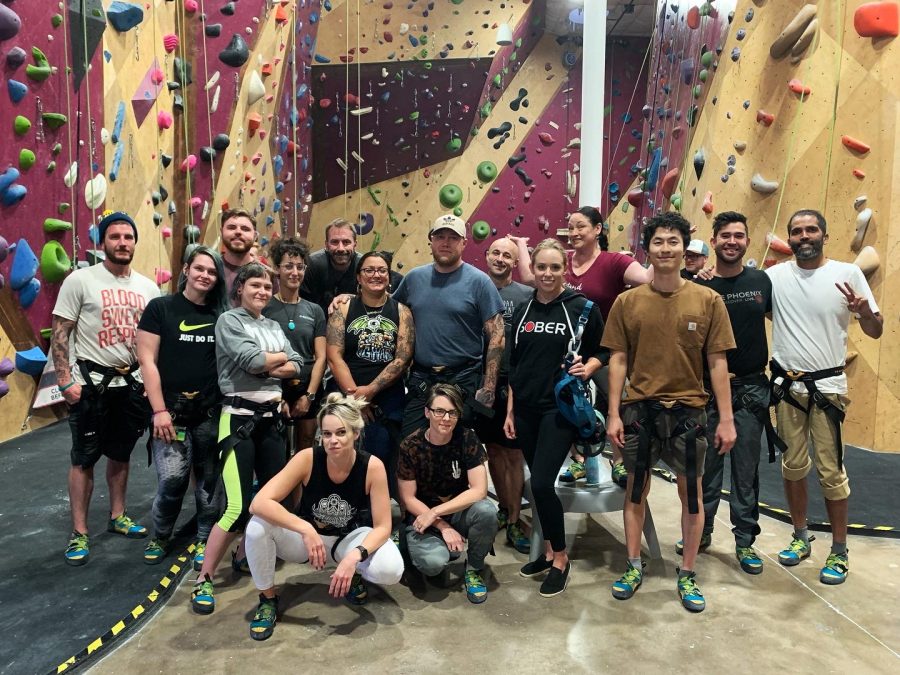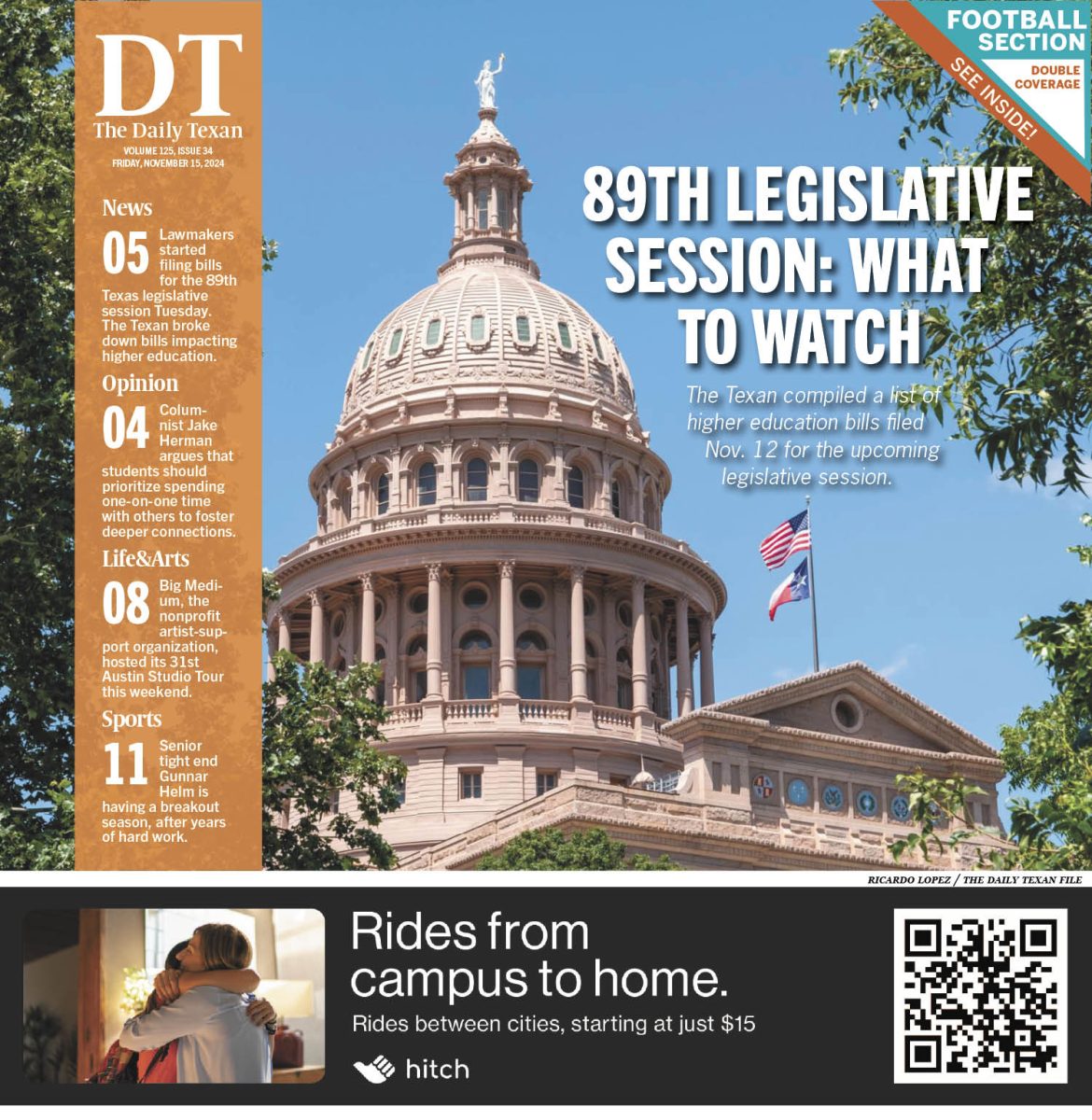The Phoenix keeps Austinites active on their path to sobriety
December 15, 2021
Editor’s Note: This article first appeared as part of the November 12 flipbook.
The often packed Mozart’s Coffee Roasters offers students and tourists alike a space to gather and drink in a magical lakeside view with a cold brew. But at open mic night, the place bursts with patrons and possibility. As laughter echoes through the outdoor café, one member of the crowd bares a part of their heart just like the performers.
Erin Wackerla, local program coordinator for The Phoenix, wears a black t-shirt with “SOBER” in big white font, which serves as a beacon for attendees of The Phoenix’s first music social. While it used to make her self-conscious, a reaction she now attributes to the societal stigma attached to leading a substance-free lifestyle, the uniform now offers a sense of pride.
“I spent too much time in the shadows in shame with my addiction,” Wackerla said. “I never admitted it to myself, much less anyone else, because there was so much stigma around it. I wasted years trying to find a way out of it and rediscover what life’s really about.”
The Phoenix — a sober active community offering free, premium fitness classes in exchange for 48 hours of sobriety — serves as a saving grace for those leading a sober lifestyle or working to edge maladaptive behaviors out of their lives and reconnect with simpler, more joyful pastimes. In August, the nonprofit had their first kickoff event. Their calendar offers weekly crossfit, yoga, stand-up paddleboarding and more.
“Austin has been super welcoming for The Phoenix and everyone who has heard our name,” program manager Jessica Looney said. “When we say, ‘The Phoenix,’ we get grins and, ‘We’re so happy that you’re here, it’s about time!’”
The nationwide organization has over 70,000 members and plans to reach a million people in the next five years, according to Looney. The Austin local looks forward to diversifying the opportunities for camaraderie with cultural events, such as the music social and holiday gatherings. The Phoenix hopes to hold events with UT’s Center for Students in Recovery and University High School to meet on-campus needs.
“Working with others truly is the key (to recovery), and that’s what we’re doing,” Looney said. “It’s what the Phoenix is: bringing people together, helping physical, mental, emotional health and working with others.”
After sitting at home for months, nervous to risk her tenuous new sobriety, Wackerla joined The Phoenix. She began rock climbing again — a passion her addiction had separated her from — and now leads The Phoenix’s bimonthly rock climbing sessions at Crux Climbing Center.
“If I have that goal, I need to be healthy and be able to prioritize well. Drinking and drugs are not going to support that,” Wackerla said. “(Climbing is) my intrinsic passion, and The Phoenix helped me rediscover that. There’s definitely more out there than partying, and it’s more fun, more adventurous.”
Activation associate Shane Berber describes the organization as a blessing. Now, he’s reconnecting with his passion for tennis and helping other sober and sober-curious people find their spark again.
“Addiction is like isolation in a nutshell,” Berber said. “The Phoenix brings together people from different backgrounds of addiction, and different severities as well. It’s amazing to bring everyone out of their isolation into this community.”
The Phoenix’s website offers a plethora of synchronous Zoom fitness classes for those unable to meet in-person. But for those seeking to step out of their post-pandemic cocoon, Berber will be waiting on the court with an extra racket.
“Even if you don’t look at yourself as someone athletic or in shape, that doesn’t matter at all,” Berber said. “Just come in and get the sense of the community that we’re building.”





